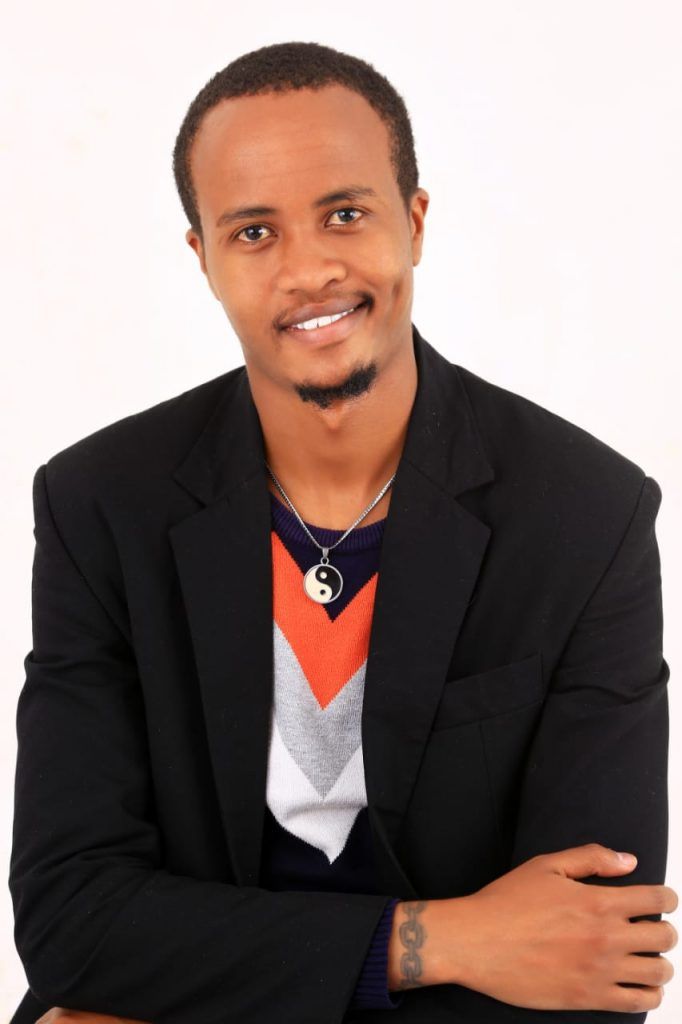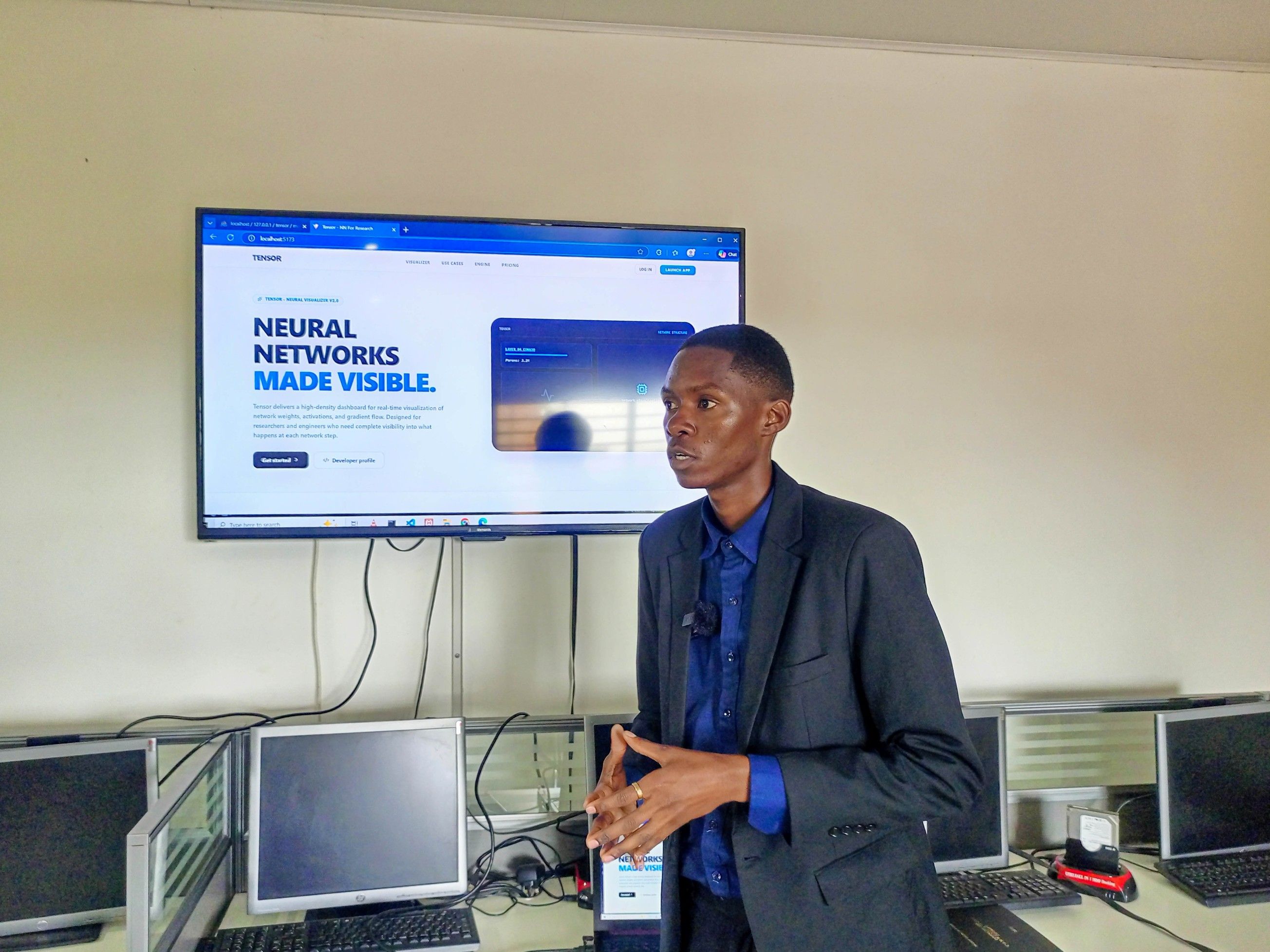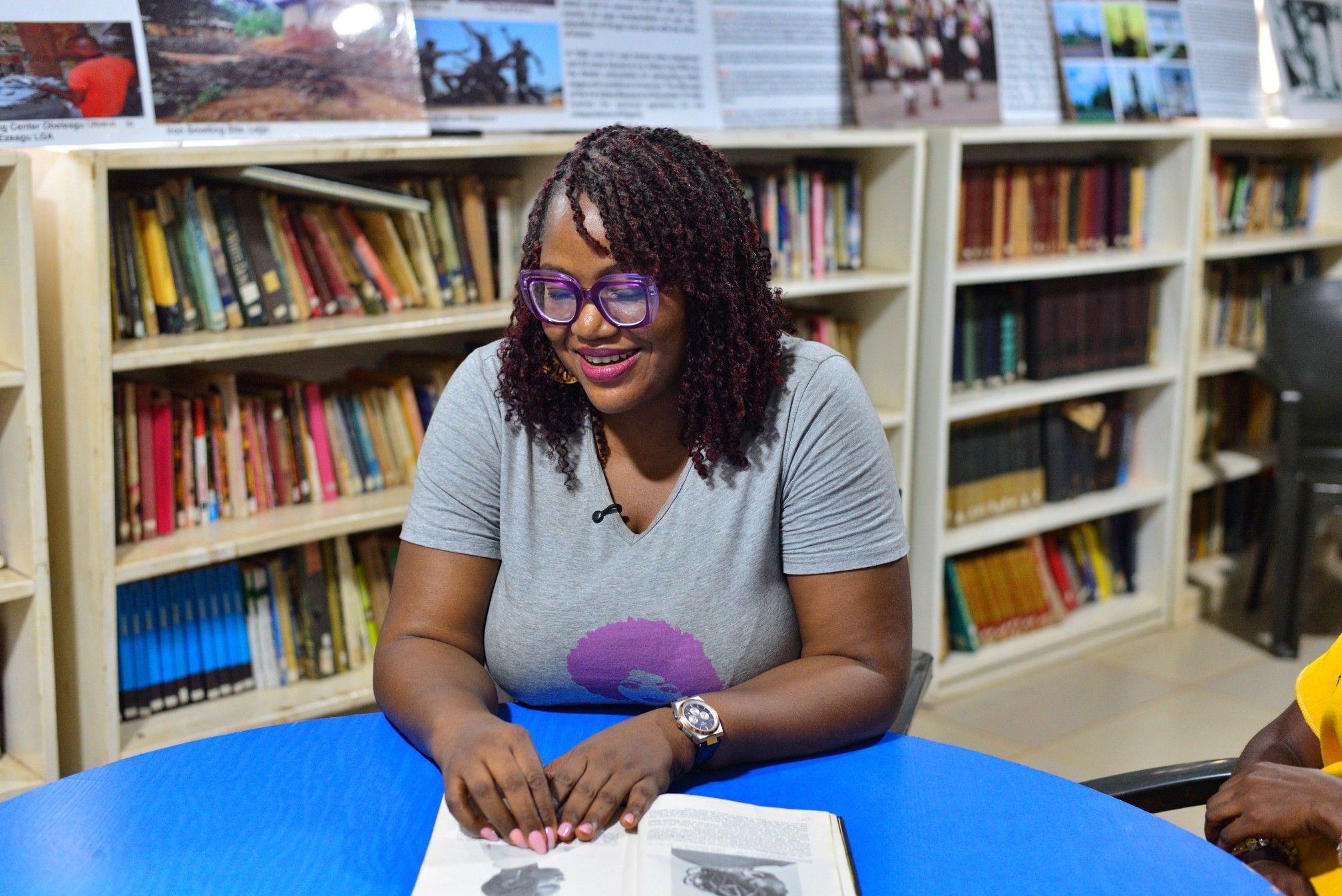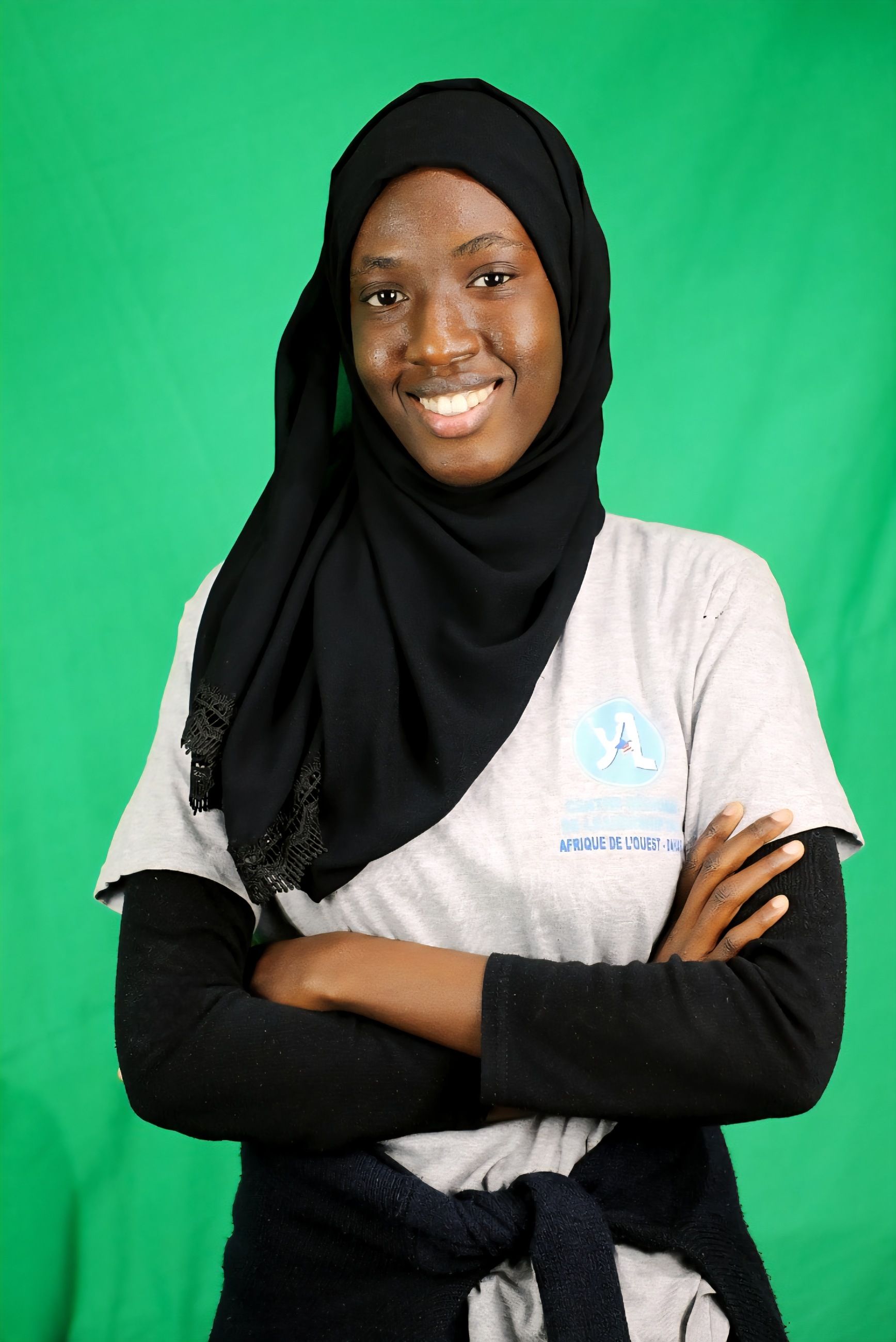Ouma Don Collins.
Nimble-minded. A prodigy. A young leader with a promising future. Also a poet, he communes with his muse, and the result: an unputdownable poetry book– Morning Shall Come. In this book that made Business Daily refer to him as “a deeply thoughtful man”, Ouma tackles the themes of humanity both as nature and virtue, and Africanity. He, also, misses not to extend a touch of sweet praises for the women in his life.
A closer look at the title of his book perhaps gives away a masked detail about him. Has he been in a form of darkness, where he prayed for his morning to come? Most poets are accused of using poetic trains to ride them away from their “demons”. Ouma pleads guilty. He is no stranger to pain and life in utter darkness. A close friend betrayed him in ways that brought him to his knees.
It may hurt to remember the betrayal, no doubt about. However, letting the story fade away like lyrics scribbled on the surface of water will deny us– humanity– the chance to learn and draw inspiration from his story. That’s the reason Ouma Don Collins, our (Positively African Book Club) author of the month, will be reconstructing his story for us on Wednesday the 24th of November, at the Chat Room, Kilimani. We will then have a discourse around the themes in his book.
I had a quick chat with Ouma, and this is how it went:
***
Morning Shall Come. What's the inspiration behind that title?
Hope. The title of the book is the title of the anchor poem in the book. In the poem, the message is that despite the hard times you may be facing now, hold on, there's going to be sunshine after the darkness. The pain is only for a while and that is why you mustn't give up.
What's your story? Had a rough season or seasons where you hung tough till your morning came?
Betrayal. It is the worst betrayal I have ever witnessed and it took me, literally, from grace to grass. I invested so deep into a political mission, blind enough to miss the red flags. I'd say that I trusted the wrong person, but we were brotherly close that I didn't think he could do anything like that. So when I spent my savings and my time then at the end of the day spoils were not shared, I had to start from scratch. It wasn't an easy walk.
You're a poet. Are you able to write whenever you want or do you wait for your muse ─ that seemingly powerful force that strikes with inspiration?
(Laughs). That's an interesting question. Thinking of it, I would say it is a mixture of both. Most of the time, however, the force is the power behind it. It strikes at random times, provoked by different things, thoughts and circumstances. Sometimes it is the analyses and debates in my head; or a person I meet who strikes me differently; conversations I have with people which trigger other thoughts; or just a deeper observation of common things and happenstances. Funny enough, if you don't put it down there and then, it is all gone!
You've written poems about the women in your life. Tell me about that.
I have not seen anything as diversely beautiful as the African woman. So, when I write about the African woman, I write about the different things that make her exquisite. In all these, I strive to debunk the old notion of beauty that has been pre-defined through literary works which place standards of beauty on the woman. The beauty of the African woman is too deep and diverse to be confined and contained within a tiny box of myopic definition. Let the African women glow in their own diverse ways. You can't stop it anyway, you can only marvel!
So when I speak about the beauty of the African woman, I speak about it in wholesomeness and in pure celebration.
Humanity and Africanity are the major themes in your book. In your own words, what are they, and why are they important?
Humanity, as a virtue, is a conscious decision to treat the other person as you would love to be treated, and the courage to naturally live by that decision as a way of life. Benevolence is a fundamental component of social beings, as humans are dependent on one another for happiness and prosperity. As a virtue, kindness is the highest form of humanity.
Kindness is free and priceless. It broods understanding and empathy, and where there's understanding, conflict cannot thrive. Most conflicts befall us today because we have stepped away from humanity, the very essence of our existence, both as individuals and as a people. We have suspended our humanity in pursuit of selfish and indefinite ends. If this goes on, you can imagine the tragic end we're headed to. Morning Shall Come calls us back to humanity and to treat one another as humans, with the kindness and dignity that we all deserve.
About Africanity, let's just say that I am a proud African in all senses. I want Africans to be proud of their Africanity as well. I need them to believe that they are the best versions of humans that have ever existed and no one should tell them otherwise. If you take a more investigative look at the book you'll realize that all names used are African. The book design is also African.
You talk about struggle being the nature of humans. Is struggle something we should accept as part of our lives?
Charles Malik puts it well, that man struggles because he cares, and he cares because he struggles. As humans, we are feted and doomed to be free and responsible as to struggle and care. That is why anyone who is not struggling or is completely carefree does not exist or has denounced their own existence.
I've seen spoken-word poets like Mufasa put their works into books. How's the reception of poetry books in Kenya like?
I have observed that most people are not receptive to poetry in general, especially written poetry. It happens to have its own niche. One of the major reasons for its poor reception is the depth of poetic work, which labours the mind for reason and meaning, which most people simply do not want. The second reason is derived from our education system, where we studied poetry in high school English Literature, most of which was foreign. It is difficult to lift an Irish poem for example, and place it into a Kenyan environment and expect it to be understood easily or wholesomely. Language structure is different, thought structures are different. Basically, context cannot easily be lifted in entirety to a different environment and maintain meaning.
So, most people left high school with the notion that poetry is difficult. They kept away from it as much as they could, even smuggled this notion into adulthood. The advantage is that when we put poetry on paper, we immortalise it.
Are you a lone wolf or are you part of a poets or writers group?
In my writing, I'm a lone wolf. I find a depth of thought in solitude, although I also like to interact with fellow writers. It is amazing how different people can put the same thing across in different ways, yet they all hit differently but with such unimaginable ingenuity. Back in Kenyatta University, I ran a society of poets called the Moonlight Meet of Poets, and through it, many grew in the art.
You're also a social entrepreneur and leader. Please tell me about that.
I care for myself and for the people around me. That is why I have always invested myself in time, talent, and treasure to make the world around me a better place. I am a co-founder of One Vision Kenya, an organization that deals with matters of environment management and conservation. I am the Director for Policy and Strategy at Pan African Congress Kenya, and I am part of the PLGP alumni secretariat where we are currently involved in a project on public goods with a focus on socially just public transport.
Additionally, I worked as a political strategist for a political project in Migori county between 2016 and 2018. So yes, I am a politician, and there's more to come, I hope. The goal is to leave my world better than I found it.
How does your ideal day look like?
(Laughs) My ideal day is totally undefined, unfortunately.
It depends on how I have planned the day, based on the things that I am involved with.
(Decides to get poetic) When I don't feel like doing things, I sit back and read, though sometimes, most of the time, time can get really tight.
The disadvantage with everything happening at the same time is that you can get so sucked into it, as to lose time for the people close to you.
Here's an opportunity for you to talk to readers and invite them to our book club where we'll be discussing your book and having readings. Take it away...
If you have never been a fan of poetry, Morning Shall Come will give you multiple reasons why you should try it out. It is enchanting, relaxing, and eaaasy... There's never been a more serene place than where silent thoughts and smooth whispers meet. Join us on the 24th of November and be part of the rare magic. See you there!
***
The Positively African Book Club will be discussing Morning Shall Come, on the 24th of November, 2021, at The Chat Room, Kilimani.
Copies of the book are available for purchase at The Writers Guild Bookstore, our partners. They are located at Hazina Towers, Nairobi, Ground Floor, Suite 2A. For inquiries or deliveries, reach them via 0748055879.
Copies will also be available for sale at the book club. To book your slot, contact: 0743-235997 or 0748-055879





